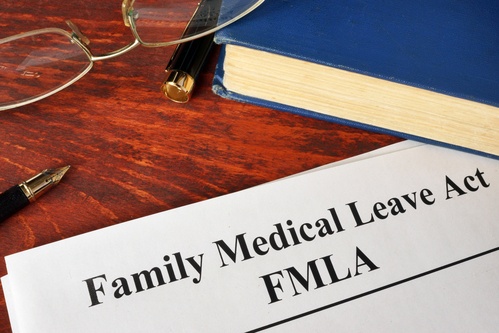

FMLA – A Way to Have Job Security While in Treatment.
If you are thinking about going into treatment for alcohol dependence or drug addiction and having a job, you are probably worried about losing it. There may be no need to worry, though; there may be a solution that can ensure that your job will still be there for you. It is called the Family Medical Leave Act or FMLA. Thanks to President Bill Clinton, this law went into effect in 1993. The Family Medical Leave Act (FMLA) states that eligible employees of covered employers can take unpaid, job-protected leave with continuation of group health insurance coverage for up to twelve workweeks of leave in a 12-month period for a serious health condition.
There are specific criteria the employer must meet: The FMLA only applies to employers that are a Private-sector employer, with 50 or more employees in 20 or more workweeks in the current or preceding calendar year, including a joint employer or successor in interest to a covered employer; a public agency, including a local, state, or Federal government agency, regardless of the number of employees it employs; or public or private elementary or secondary school, regardless of the number of employees it employs.
There are also specific criteria that the employee must meet: An eligible employee works for a covered employer; has worked for the employer for at least 12 months; has at least 1,250 hours of service for the employer during the 12 month period immediately preceding the leave (special hours of service eligibility requirements apply to airline flight crew employees;) and works at a location where the employer has at least 50 employees within 75 miles.
The 12 months of employment do not have to be consecutive. That means any time previously worked for the same employer (including seasonal work) could, in most cases, be used to meet the 12-month requirement. If the employee has a break in service that lasted seven years or more, the time worked before the break will not count unless the break is due to service covered by the Uniformed Services Employment and Reemployment Rights Act (USERRA), or there is a written agreement, including a collective bargaining agreement, outlining the employer’s intention to rehire the employee after the break-in service.
Eligible employees may take up to 12 workweeks of leave in a 12-month period for a serious health condition that makes the employee unable to perform the essential functions of their job (among other family health-related issues.)
Does FMLA cover alcohol rehab? Yes they do, but the key to being covered is that addiction and alcoholism are considered a serious health condition. In-patient treatment is considered hospitalization, which makes the employee unable to perform the essential functions of his or her job, so anyone who works for a covered employer is eligible if they meet the other employee criteria.
An application for FMLA can be filed by the treatment facility and is a relatively easy process. It covers the employee from the first missed day of work until they are medically cleared to return to work, for up to 12 weeks. There is a time frame that one needs to file for FMLA drug rehab leave within. Employees generally must request leave 30 days in advance when the need for leave is foreseeable. When the need for leave is foreseeable less than 30 days in advance or is unforeseeable, employees must provide notice as soon as possible and practicable under the circumstances.
Sometimes people also have Short Term Disability Insurance (STDI) that will help cover some of their lost wages. Checking with your HR Dept. can help determine what benefits you have and what you are eligible for. Some states have different criteria for the number of employees needed for an employer to be considered covered that are lower than the Federal requirements. Again, asking your HR Dept. or EAP (Employee Assistance Program) rep is the best way to determine your eligibility and any other benefits that you might be eligible for. Remember that this is all protected health information, so your HR representative cannot share this information with anyone unless you grant consent. If you suffer from alcohol dependence and /or a substance use disorder don’t let your fear of losing your job stop you from getting help. Call 877-284-0353 now and find out if you qualify for FMLA protection and other benefits to protect your job and most importantly get the help you need. If you don’t get help now, sooner or later you won’t have a job anyway!


